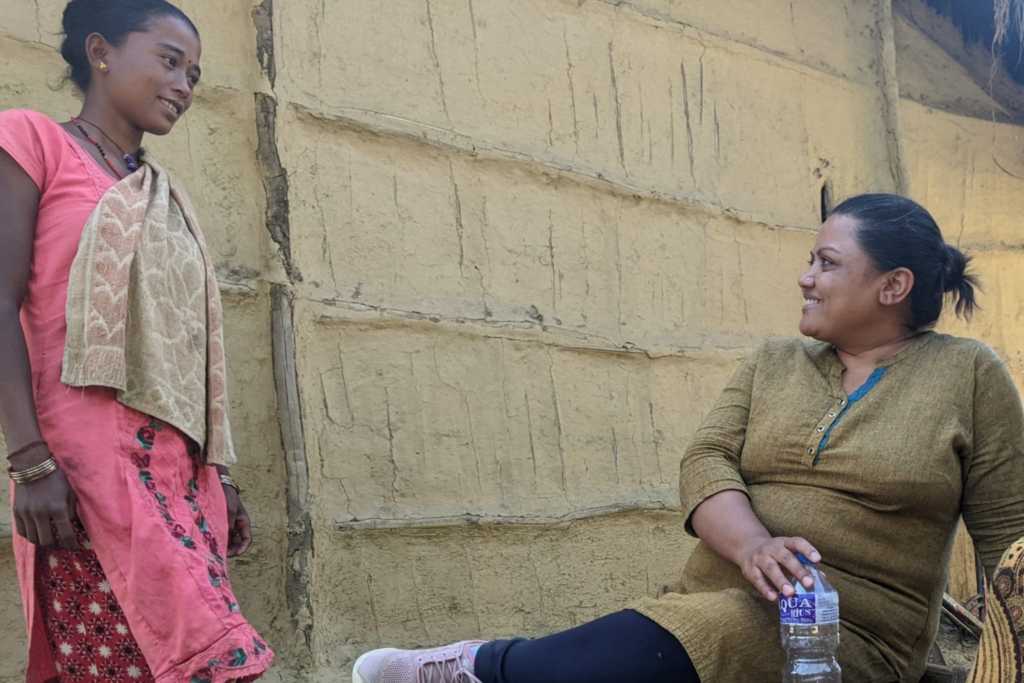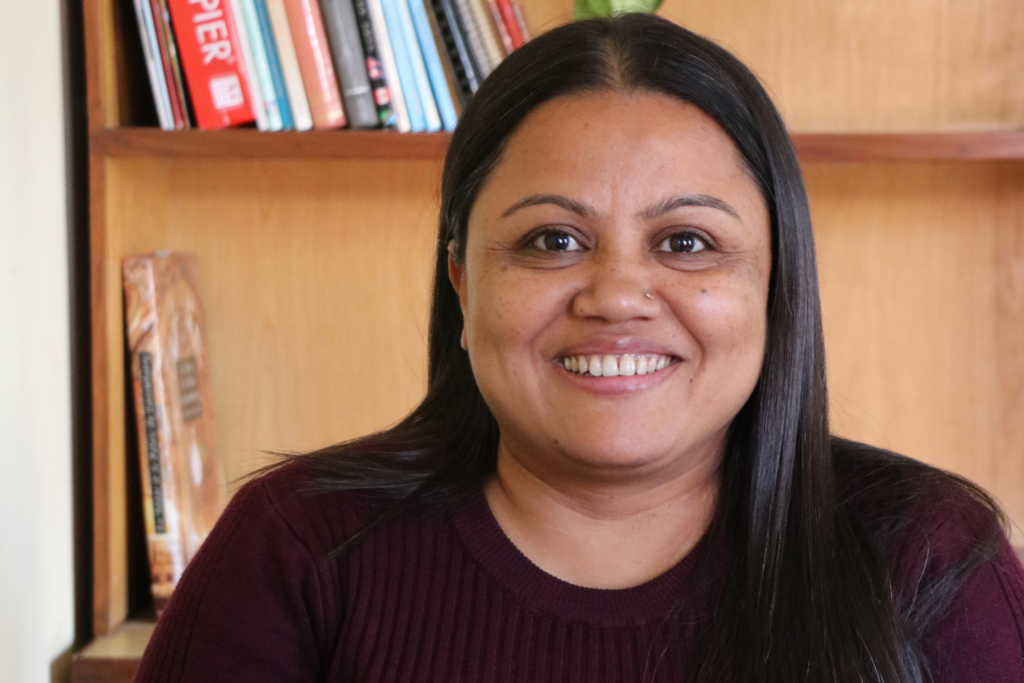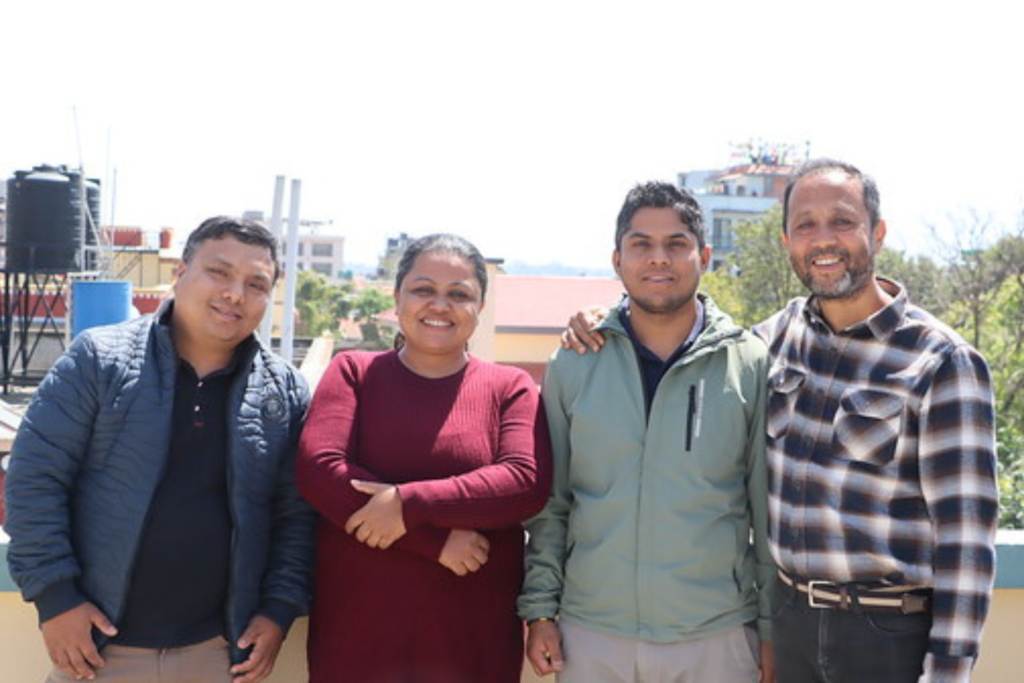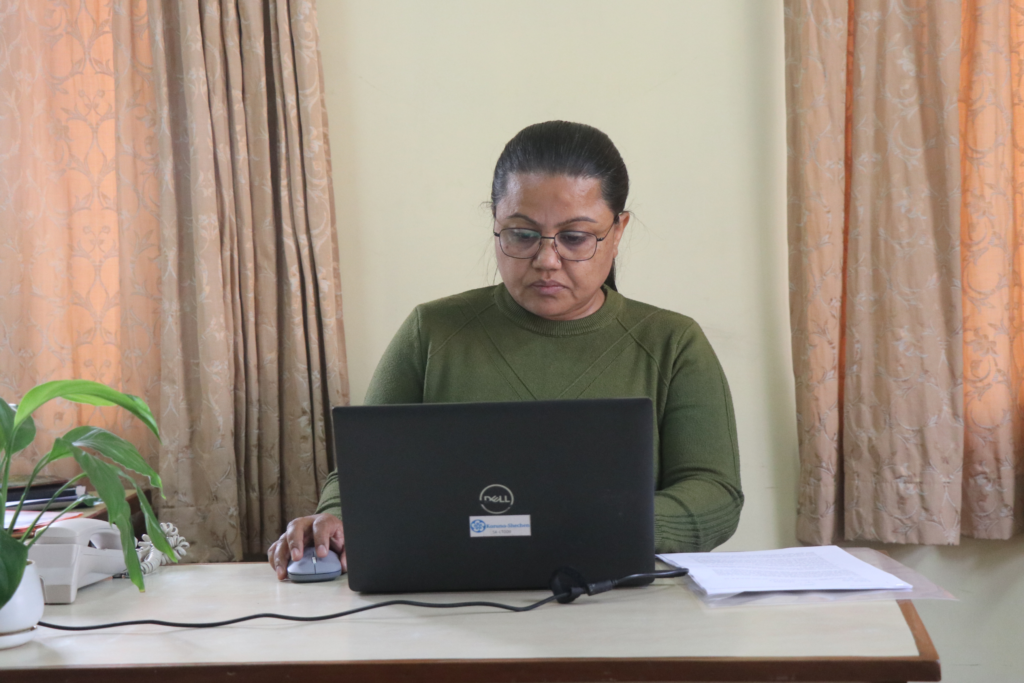Sunita Sharma is the head of programs of Karuna-Shechen since June 2022.
Her childhood significantly influenced the woman she has become: “I am a city girl, born and brought up by very compassionate parents in the capital city of Nepal, Kathmandu. Both my parents were from the remote part of the country, migrated to Kathmandu, and had an inter-caste marriage. Their marriage was never accepted by the family and society. So, we were a nuclear family that was so much in love, affectionate and caring for each other. My parents never got the opportunity to get formal education due to poverty and social norms.
Thus, we were provided with an opportunity with the best quality education, keeping my parents’ needs aside. Since my early childhood, I heard many stories of hardship in remote areas, faced poverty, and experienced social discrimination faced by my parents and adversity in giving education and a quality life to us. All these situations germinated the seed to become an activist to advocate all these odds in my society.“

To contribute in the household, Sunita started to work early in non-governmental organizations. There, she created her own path: “I always wanted to support my parents financially to reduce their workload. So, I started working at the very early age of 16, by providing tuition classes to my juniors. At 19, I started as an intern at a National NGO where I learned various aspects of development work. For 22 years, I have been working in this sector living in various parts of my country and supporting people living in the hidden Himalayas to break the vicious circle of poverty.”
Discover Karuna-Shechen’s strategy to break the circle of poverty
Sunita is very determined in her work and she is tenacious despite the setbacks and attacks she faces: “Every career has opportunities and problems since they are the two sides of the same coin. I did encounter a number of challenges throughout my working career. First of all, I had to repeatedly demonstrate my dedication and desire for helping the remote area of the country. A significant challenge for me was the prevailing one-line tale, “A city girl is not able to cope with geographical hardship.” Similarly, being a young girl overseeing several guys with patriarchal ideas was difficult. People used to make fun of my language, therefore I truly had to work hard to prove myself Nepali (with lots of English words in-between). Also, it was emotionally challenging for me to live apart from my family. Along the way, I experienced body shaming, sexual assault, and other harmful speech and behaviors. Strong determination, undying encouragement from my parents and siblings, and getting super respective mentors and colleagues at my work supported me in getting focused and keep moving forward in my journey.”
Driven by her energy and commitment, Sunita keeps going and gets involved in numerous projects, at the heart of which she enhances women’s autonomy: “As a person who always loves to take challenges, one of the most notable inspiring experiences or challenges throughout my work journey was forming the only female cooperative in the Far-West Region. That particular place is/was going through multiple socially ill practices where women were always given secondary/supportive roles. In such a context, forming a cooperative with all women in leadership positions, all cooperative members being female and female staff in management roles was a real challenge.

It took a lot of hard work, patience, sweat, and tears to succeed in this journey, and I feel proud that this particular cooperative is continuously giving its financial and non-financial services to the deprived and poor communities for the past 15 years of its establishment.”
Within Karuna, Sunita found a platform to carry on her work: “Karuna, in my two decades-long working career, is the eighth organization. Immediately, after joining I found my personal values perfectly matched with the organizational values. Since then each day has been a pleasant learning experience for me.

In Karuna, I got a space where I could get closer to the community people, feel their situations and learn about their challenges in life. This experience allowed me to design various programs in supporting community people to minimize the challenges they are facing. Apart from this, coordinating with the local government of Nepal and other CBOs/NGOs in strengthening collective work in breaking the vicious circle of poverty guided us towards sustainability efforts.
Ah the head of programs, she provides: “effective leadership, decision-making , support to the effective implementation process and ensures she takes the role of a team player.
I am very happy in performing my roles and supporting all my team members to work with the community.
Sunita Sharma
Whatever the projects, Sunita always follows her principles, she makes sure she is in the right posture and feels in accordance with herself. She thrives in daily learning: “empathy, integrity, and courage are the basic principles that have always guided me in the personal and professional journey of my life.
The communities where I have worked for the past 20 years have been my biggest universities for learning, where I have learned the most important lessons of my life. Being with them helped me develop personally. Understanding the issues and working out solutions with them constantly motivates me. I always feel that there are countless things I need to learn, and I will continue to learn with them till my body and spirit allow me to.”

The head of programs recalls: “Nepal is not an exception to the fact that the globe is moving at a fast pace. Family dissolution, criminality, and the loss of humanity are the results of individuals becoming increasingly materialistic, disengaged, and racing in an endless race. To preserve humanity, we must actively foster altruism, empathy, love, compassion, and trust. As a result, I anticipate having more and more space in my work in the days and years to come.
I’d want to encourage those who want to make a difference in their communities to always listen to their hearts and be hopeful. View the world through the perspective of others and fit yourself in helping them.”
